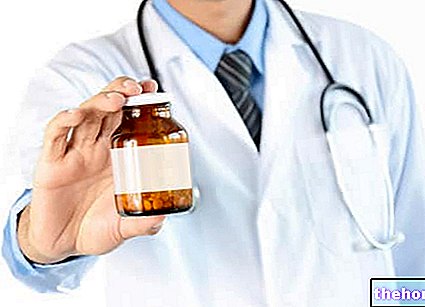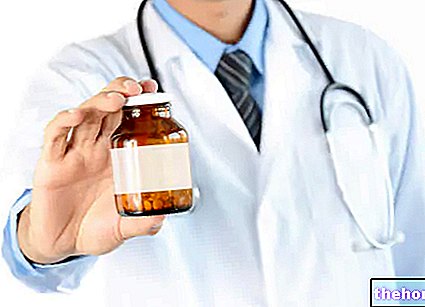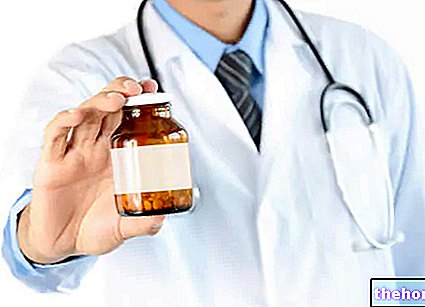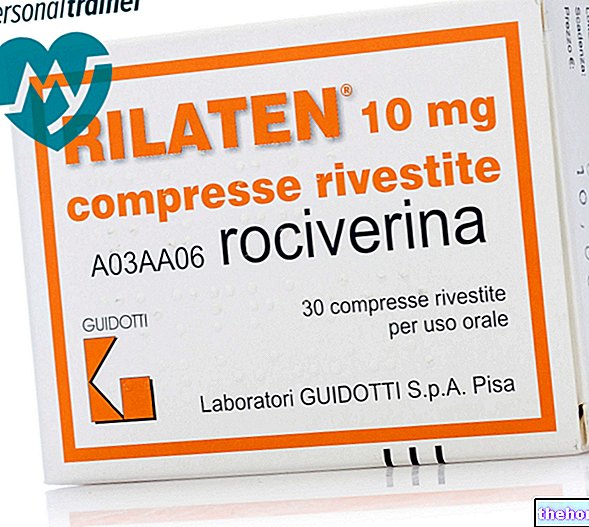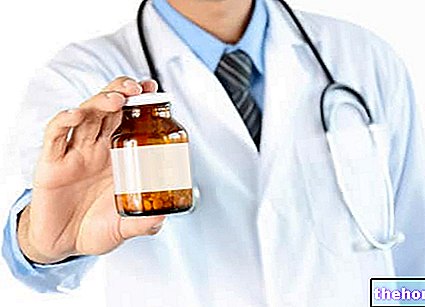Active ingredients: Levothyroxine (Levothyroxine sodium)
Eutirox 25mcg tablets
Eutirox 50mcg tablets
Eutirox 75mcg tablets
Eutirox 88mcg tablets
Eutirox 100mcg tablets
Eutirox 112mcg tablets
Eutirox 125mcg tablets
Eutirox 137mcg tablets
Eutirox 150mcg tablets
Eutirox 175mcg tablets
Eutirox 200mcg tablets
Why is Eutirox used? What is it for?
EUTIROX is the thyroid hormone levothyroxine sodium (T4), exactly the same as that produced by the thyroid gland. It is obtained in the laboratory by synthetic way and is presented in tablets. The T4 contained in Eutirox is converted in our body into the triiodiothyronine hormone (T3 ), which regulates numerous functions of the human metabolism.
Eutirox is used to treat states of hypothyroidism such as: goiter, prophylaxis of relapses after strumectomy, thyroid hypofunction, inflammation of the thyroid, during therapy with antithyroid.
Contraindications When Eutirox should not be used
Do not take EUTIROX:
- If you are allergic to the active substance or any of the other ingredients of this medicine
- If you have "untreated" adrenal insufficiency (adrenal gland disease), untreated "pituitary insufficiency (pituitary disease)" and untreated thyrotoxicosis.
Treatment with Eutirox must not be initiated in acute myocardial infarction, acute myocarditis and pancarditis.
Precautions for use What you need to know before taking Eutirox
Before starting thyroid hormone therapy, the following conditions should be ruled out or treated:
Reduced blood supply to the heart (coronary insufficiency), chest pain of cardiac origin (angina pectoris), myocarditis (inflammation of the heart muscles), necrosis of the heart tissue (myocardial infarction), inability of the heart to provide adequate amounts of blood (heart failure), the presence of plaques in the arteries that decrease the passage of blood (arteriosclerosis), increased blood pressure (hypertension), decreased function of the pituitary gland (pituitary insufficiency) or the adrenal gland (adrenal insufficiency), functioning of the thyroid gland not properly controlled by the pituitary gland (autonomy of the thyroid gland).
Warnings and Precautions:
- avoid even a modest overdose of Eutirox in patients with coronary insufficiency, heart failure or abnormal heart rhythms (arrhythmias): in these cases frequent monitoring of thyroid hormone levels is necessary;
- the use of drugs having hormonal activity on the thyroid gland for the treatment of obesity is dangerous, since, at the necessary doses, it can cause secondary reactions of particular gravity;
- Rare cases of hepatic dysfunction have been reported in subjects treated with thyroid preparations, it is therefore recommended to reduce the dosage or to discontinue treatment if, during the course of therapy, fever, muscle weakness or abnormal laboratory tests to study liver function appear. ;
- Patients suffering from panhypopituarism (pituitary gland disease) or other diseases that may predispose to adrenal insufficiency or in case of adrenal insufficiency (poor functioning of the adrenal glands) may react unfavorably to taking this medicine; therefore it is advisable to start corticosteroid therapy before treatment with Eutirox;
- establish the cause of secondary hypothyroidism, i.e. poor production of the TSH hormone, which regulates thyroid function, before administering Eutirox replacement therapy. If necessary, initiate replacement therapy for "compensated adrenal insufficiency;
- before starting a therapy with Eutirox, it is necessary to exclude a "thyroid autonomy. To this end, the doctor will evaluate the need to perform the TRH test or a scintigraphy during suppression;
- in postmenopausal women with hypothyroidism and a high risk of osteoporosis, it is necessary to avoid that the concentration of levothyroxine in the blood rises above normal: therefore, in these patients the thyroid function must be strictly controlled;
- Levothyroxine should not be administered in hyperthyroidism except as a concomitant supplement to antithyroid therapy of hyperthyroidism.
In "primary hypothyroidism" TSH levels alone (measured by a sensitive method) should be used to monitor therapy. The frequency of TSH checks during the dose adjustment phase depends on the clinical situation, but is generally recommended at intervals. 6-8 weeks until desired levels are reached.
In particular, in patients with differentiated carcinoma of the thyroid who begin treatment following thyroidectomy and possible radioisotope therapy, the TSH dosage is recommended 2 months after the start of treatment to confirm the suppression of TSH and visits control after about 6 and 12 months. In individuals judged to be in complete remission of the disease, it is recommended that the level of TSH suppression be adjusted based on medical judgment.
In patients whose TSH levels have reached the desired level and in those whose L-thyroxine product or dosage has been changed, the TSH concentration should be checked after 8-12 weeks and the dosage adjusted accordingly. to the results obtained. Once the maintenance dose is reached, clinical and biochemical checks should be repeated every 6-12 months based on medical judgment.
- once Eutirox therapy has started, in case of switching to another levothyroxine product, it is recommended to modify the dosage according to the individual clinical response and laboratory results
For diabetic patients and those on anticoagulant therapy, see the next section.
Interactions Which drugs or foods can modify the effect of Eutirox
Warning: tell your doctor or pharmacist if you are taking, have recently taken or might take any other medicines.
You must not take these medicines at the same time during therapy with EUTIROX.
The concomitant use of the following drugs is not recommended or requires caution, therefore it is absolutely necessary to consult your doctor:
- drugs for diabetes (insulin and oral hypoglycemic agents) because a decrease in their effect on reducing the concentration of glucose in the blood may occur (hypoglycemic effect); therefore, at the beginning of a therapy based on thyroid hormones, he must frequently check the levels of glucose in the blood (glycaemia) and if necessary he must modify the dosage of the antidiabetic drug;
- drugs that regulate blood fluidity (coumarin anticoagulants) because an enhancement of the anticoagulant effect may occur due to a higher concentration of anticoagulants in the blood. In fact, levothyroxine displaces the anticoagulants linked to blood proteins (plasma proteins), making them available in the circulation a greater quantity of drug. Therefore, at the beginning of a therapy based on thyroid hormones he must frequently check the coagulation parameters and modify the dosage of the anticoagulant if necessary;
- drugs that reduce the concentration of cholesterol in the blood (cholesterol-lowering) based on cholestyramine and colestipol because these two substances prevent the absorption of levothyroxine sodium; therefore, you must take levothyroxine 4-5 hours before taking the drug containing cholestyramine or colestipol;
- drugs that contain as active ingredients or excipients iron, aluminum (antacids, sucralfate), or calcium carbonate because they can reduce the effect of levothyroxine; therefore, you must take levothyroxine at least 2 hours before taking drugs containing iron, aluminum or calcium carbonate;
- salicylates (anti-inflammatory), dicumarol (anticoagulant), furosemide (diuretic) in high doses (250mg), clofibrate (to reduce cholesterol and lipids in the blood), phenytoin (antiepileptic) and other substances as they can displace sodium levothyroxine from plasma proteins , resulting in a "high concentration of the free fraction of the thyroid hormone, fT4. These substances therefore increase the effect of Eutirox;
- Propylthiouracil (antithyroid drug), glucocorticoids (steroidal anti-inflammatory drugs), beta-blockers, amiodarone (antiarrhythmic) and contrast agents containing iodine, as they prevent the conversion by the peripheral organs of our body of the hormone T4 into the biologically more active form T3 These substances therefore diminish the effect of Eutirox;
- Amiodarone (antiarrhythmic), because the high amount of iodine it contains can cause both hyperthyroidism and hypothyroidism. Particular caution is advised in the case of a nodular goiter, because there may still be partial thyroid function (thyroid autonomy) not recognized;
- Sertraline (antidepressant), chloroquine / proguanil (drugs for malaria therapy) decrease the effectiveness of levothyroxine and increase TSH levels in the blood;
- Barbiturates and other drugs that can increase the amount of levothyroxine eliminated from the blood through hepatic metabolism (hepatic clearance);
- Medicines containing estrogen: if you are using estrogen-containing contraceptives or if you are a postmenopausal woman and are using replacement therapy for estrogen deficiency, you may have an increased need for levothyroxine;
- Antiepileptic drugs. Defenylhydantoin should not be administered intravenously during treatment with EUTIROX
Warnings It is important to know that:
Eutirox with food and drink
Compounds or foods containing soy can decrease the absorption of levothyroxine by the intestine; therefore; especially at the beginning or at the end of the period of taking these products, you must change the dose of Eutirox;
Pregnancy and breastfeeding
If you are pregnant or breast-feeding, think you may be pregnant or are planning to have a baby, ask your doctor for advice before taking this medicine.
The administration of the medicine must take place in cases of real need and under the direct supervision of the doctor.
Hypothyroidism
Do not discontinue treatment with thyroid hormones during pregnancy and breastfeeding; the dose may need to be increased during pregnancy. Experience has shown that this drug does not cause congenital malformations (teratogenicity) and is not toxic to the human fetus at therapeutic dosages. recommended. Very high doses of levothyroxine taken during pregnancy can have a negative effect on the development of the fetus and in the subsequent growth phases after birth (postnatal phase).
Levothyroxine is found in breast milk during lactation but concentrations reached at recommended therapeutic doses do not cause the development of hyperthyroidism or suppression of TSH hormone secretion in the newborn.
Hyperthyroidism
You should not take levothyroxine concomitantly with drugs for the treatment of hyperthyroidism (antithyroid drugs). In fact, the presence of levothyroxine may require a higher dose of antithyroid; these drugs, unlike levothyroxine, cross the placental barrier and can cause effects fetal pharmacological (hypothyroidism of the fetus) Therefore in pregnancy, if antithyroid drugs are needed, they should be taken alone (antithyroid monotherapy).
Driving and using machines
There are no known effects on the ability to drive and use machines. However, due to the possible onset of headache, caution is advised in driving vehicles and in carrying out activities that require particular vigilance.
Important information about some of the ingredients of EUTIROX
Eutirox contains a small amount of lactose (approximately 65 mg) a type of sugar. Tell your doctor if you have problems related to sugar intolerance or malabsorption.
Dosage and method of use How to use Eutirox: Dosage
Always take this medicine exactly as your doctor has told you. If in doubt, consult your doctor.
Your doctor will decide on the right dose for your condition.
Goiter
Adults: 100-150 micrograms per day.
Children: (up to 14 years): 50-100 micrograms per day. Prophylaxis of relapses after strumectomy: 100 micrograms per day.
Thyroid hypofunction
Adults: 50 micrograms per day as a starting dose (for about two weeks); increase in the daily dose by 50 micrograms at intervals of approximately 14-15 days, up to the maintenance dose of 100-200 micrograms per day; on average 2-2.5 micrograms / kg body weight / day.
Children: 0-6 months: 10 micrograms / kg body weight / day, 6-12 months: 8 micrograms / kg body weight / day, 1-5 years: 6 micrograms / kg body weight / day, 5-10 years: 4 micrograms / kg body weight / day.
Thyroid inflammation
100-150 micrograms per day.
During therapy with antithyroid, the administration of 50-100 micrograms per day will be sufficient. To be taken with a sip of water in the morning, preferably on an empty stomach.
Overdose What to do if you have taken an overdose of Eutirox
If you take more EUTIROX than you should A high concentration of the hormone T3, which is the biologically active hormone in our body, can give you a more reliable indication of overdose than the high concentration of T4 or fT4.
After an overdose you may be subject to symptoms of a sharp acceleration of the metabolism.
In these cases, consult your doctor immediately, who may advise you to stop the treatment and carry out the appropriate tests.
Taking only the liquid part of the blood, ie the plasma (therapeutic plasmapheresis) can help you if you have taken large doses of the drug.
In cases of poisoning occurred eg. in suicide attempts it has been shown that doses of 10 mg of levothyroxine can be tolerated without complications.
However, there have been reports of sudden cardiac arrest death in patients who have been abusing this drug for years.
If you have any further questions on the use of this medicine, ask your doctor or pharmacist.
Side Effects What are the side effects of Eutirox
Like all medicines, Eutirox can cause side effects, although not everybody gets them.
Occasionally, especially if he exceeds his personal tolerance limit to levothyroxine, if he takes too much drug or if the dose of levothyroxine is increased too quickly at the start of thyroid hormone therapy, he may suffer from the typical symptoms of hyperthyroidism such as:
- increased heart rate (tachycardia)
- palpitations
- cardiac arrhythmias
- angina pectoris
- headache
- muscle weakness
- cramps of the skeletal muscles
- hot flashes
- fever
- He retched
- changes in the menstrual cycle
- pseudotumor cerebri, i.e. a condition characterized by headache, nausea, vomiting
- tremor restlessness
- insomnia
- excessive sweating (hyperhidrosis)
- weight loss
- diarrhea
- agitation
In such cases the daily dosage can be reduced or the drug must be stopped for a few days. Therapy can be resumed with caution when adverse reactions have resolved.
If you are hypersensitive, you may have allergic reactions.
If you get any side effects, talk to your doctor or pharmacist. This includes any possible side effects not listed in this leaflet.
Expiry and Retention
Expiry: see the expiry date on the label.
Do not use this medicine after the expiry date which is stated on the label. The expiry date refers to the last day of that month.
Keep EUTIROX at a temperature not exceeding 25 ° C and in the original packaging to protect the product from light.
Keep this medicine out of the sight and reach of children.
Do not throw any medicines via wastewater or household waste. Ask your pharmacist how to throw away medicines you no longer use. This will help protect the environment.
What EUTIROX contains
One tablet contains:
Active ingredient: LEVOTHYROXINE SODIUM 25 micrograms - 50 micrograms - 75 micrograms - 88 micrograms - 100 micrograms - 112 micrograms - 125 micrograms - 137 micrograms - 150 micrograms - 175 micrograms - 200 micrograms.
Excipients: corn starch, croscarmellose sodium, gelatin, lactose monohydrate, magnesium stearate.
EUTIROX is in tablets packed in blisters of 50 tablets.
Source Package Leaflet: AIFA (Italian Medicines Agency). Content published in January 2016. The information present may not be up-to-date.
To have access to the most up-to-date version, it is advisable to access the AIFA (Italian Medicines Agency) website. Disclaimer and useful information.
01.0 NAME OF THE MEDICINAL PRODUCT
EUTIROX TABLETS
02.0 QUALITATIVE AND QUANTITATIVE COMPOSITION
EUTIROX 25 mcg tablets
1 tablet contains:
Active ingredient: Levothyroxine sodium 25 mcg (equal to 24.31 mcg of Levothyroxine).
EUTIROX 50 mcg tablets
1 tablet contains:
Active ingredient: Levothyroxine sodium 50 mcg (equal to 48.62 mcg of Levothyroxine).
EUTIROX 75 mcg tablets
1 tablet contains:
Active ingredient: Levothyroxine sodium 75 mcg (equal to 72.96 mcg of Levothyroxine).
EUTIROX 88 mcg tablets
1 tablet contains:
Active ingredient: Levothyroxine sodium 88 mcg (equal to 85.58 mcg of Levothyroxine).
EUTIROX 100 mcg tablets
1 tablet contains:
Active ingredient: Levothyroxine sodium 100 mcg (equal to 97.28 mcg of Levothyroxine).
EUTIROX 112 mcg tablets
1 tablet contains:
Active ingredient: Levothyroxine sodium 112 mcg (equal to 108.92 mcg of Levothyroxine).
EUTIROX 125 mcg tablets
1 tablet contains:
Active ingredient: Levothyroxine sodium 125 mcg (equal to 121.59 mcg of Levothyroxine).
EUTIROX 137 mcg tablets
1 tablet contains:
Active ingredient: Levothyroxine sodium 137 mcg (equal to 133.23 mcg of Levothyroxine).
EUTIROX 150 mcg tablets
1 tablet contains:
Active ingredient: Levothyroxine sodium 150 mcg (equal to 145.9 mcg of Levothyroxine).
EUTIROX 175 mcg tablets
1 tablet contains:
Active ingredient: Levothyroxine sodium 175 mcg (equal to 170.18 mcg of Levothyroxine).
EUTIROX 200 mcg tablets
1 tablet contains:
Active ingredient: Levothyroxine sodium 200 mcg (equal to 194.60 mcg of Levothyroxine).
For the full list of excipients see section 6.1
03.0 PHARMACEUTICAL FORM
Tablets
White, round, flattened tablets on both sides, with cross-shaped incision, beveled edge and with the inscription:
Eutirox 25 mcg EB 25
Eutirox 50 mcg EB 50
Eutirox 75 mcg EB 75
Eutirox 88 mcg EB 88
Eutirox 100 mcg EB 100
Eutirox 112 mcg EB 112
Eutirox 125 mcg EB 125
Eutirox 137 mcg EB 137
Eutirox 150 mcg EB 150
Eutirox 175 mcg EB 175
Eutirox 200 mcg EB 200
04.0 CLINICAL INFORMATION
04.1 Therapeutic indications
States of hypothyroidism: goiter, prophylaxis of relapses after strumectomy, thyroid hypofunction, inflammation of the thyroid, during therapy with antithyroid.
04.2 Posology and method of administration
It is always advisable to carefully check the treatment by the doctor, who will adjust the doses and duration of therapy according to the needs of the individual patient.
In principle, the dosage schedule is:
Goiter
Adults: 100-150 mcg per day
Children (up to 14 years): 50-100 mcg per day.
Prophylaxis of relapses after strumectomy: 100 mcg per day.
Thyroid hypofunction
Adults:
50 mcg per day as a starting dose (for about two weeks);
increase in the daily dose of 50 mcg at intervals of approximately 14-15 days, up to the maintenance dose of 100-200 mcg per day: on average 2-2.5 mcg / kg body weight / day.
Children:
0-6 months: 10 mcg / kg body weight / day
6-12 months: 8 mcg / kg body weight / day
1- 5 years: 6 mcg / kg body weight / day
5-10 years: 4 mcg / kg body weight / day
Thyroid inflammation: 100-150 mcg per day.
During therapy with antithyroid, the administration of 50-100 mcg per day will be sufficient.
To be taken with a sip of water in the morning, preferably on an empty stomach.
04.3 Contraindications
Hypersensitivity to the active substance or excipients.
Untreated adrenal insufficiency, untreated pituitary insufficiency and untreated thyrotoxicosis.
Treatment with Eutirox must not be initiated in acute myocardial infarction, acute myocarditis and pancarditis.
04.4 Special warnings and appropriate precautions for use
The product should be used with caution and under strict medical supervision.
Before starting thyroid hormone therapy, or before performing a thyroid suppression test, the following conditions should be ruled out or treated: coronary insufficiency, angina pectoris, myocardial infarction, myocarditis, heart failure, arteriosclerosis, hypertension, pituitary or adrenal insufficiency, autonomy of the thyroid gland.
The induction of even mild hyperthyroidism in patients with coronary insufficiency, heart failure or tachyarrhythmias should be avoided. Therefore, frequent monitoring of thyroid hormone levels is necessary in these cases.
The use of drugs having hormonal activity on the thyroid gland for the treatment of obesity is dangerous since, at the necessary doses, it can cause secondary reactions, even of considerable seriousness.
Since rare cases of hepatic dysfunction have been reported in subjects treated with thyroid preparations, it is recommended to reduce the dosage or discontinue treatment if fever, muscle weakness or abnormal liver function laboratory tests occur during therapy.
Patients suffering from panhypopituitarism or other predisposing causes to adrenal insufficiency may react unfavorably to Levothyroxine; therefore it is advisable to start corticosteroid therapy before treatment with EUTIROX.
The cause of secondary hypothyroidism should be established prior to administration of replacement therapy and, if necessary, replacement therapy should be initiated for compensated "adrenal insufficiency."
In cases where thyroid autonomy is suspected, a TRH test or a suppression scintigraphy should be performed before initiating therapy.
In postmenopausal women with hypothyroidism and a high risk of osteoporosis, it is necessary to avoid serum levels of levothyroxine above the physiological ones; therefore, thyroid function must be closely monitored.
Levothyroxine should not be administered in hyperthyroidism except as a concomitant supplement to antithyroid therapy of hyperthyroidism.
Once levothyroxine therapy is instituted, it is recommended to adjust the dosage according to individual clinical response and laboratory tests when switching to another levothyroxine product.
In "primary hypothyroidism" TSH levels alone (measured by a sensitive method) should be used to monitor therapy.
The frequency of TSH checks during the dose adjustment phase depends on the clinical situation, but is generally recommended at 6-8 week intervals until desired levels are achieved.
In particular, in patients with differentiated carcinoma of the thyroid who begin treatment following thyroidectomy and possible radioisotope therapy, the TSH dosage is recommended 2 months after the start of treatment to confirm the suppression of TSH and visits control after about 6 and 12 months. In individuals judged to be in complete remission of the disease, it is recommended that the level of TSH suppression be adjusted based on medical judgment.
In patients whose TSH levels have reached the desired level and in those whose L-thyroxine product or dosage has been changed, the TSH concentration should be checked after 8-12 weeks and the dosage adjusted accordingly. to the results obtained. Once the maintenance dose is reached, clinical and biochemical checks should be repeated every 6-12 months based on medical judgment.
Eutirox contains lactose, therefore patients with rare hereditary problems of galactose intolerance, the Lapp lactase deficiency or glucose-galactose malabsorption should not take this drug.
For diabetic patients or patients on anticoagulant therapy, see section 4.5.
04.5 Interactions with other medicinal products and other forms of interaction
At the beginning of therapy with Eutirox, in diabetics treated with insulin or with oral hypoglycemic agents and in patients on anticoagulant therapy, laboratory checks must be systematically carried out to highlight any phenomena of interaction and then adapt the daily dosage again.
Antidiabetic drugs:
Levothyroxine may reduce the effect of hypoglycemic drugs. For this reason, blood glucose levels should be monitored frequently at the start of thyroid hormone therapy and the dosage of the antidiabetic drug should be adjusted as necessary.
Coumarin derivatives:
The effects of anticoagulant therapy may be potentiated, as levothyroxine displaces anticoagulant drugs from plasma proteins. Therefore, coagulation parameters should be monitored regularly at the start of thyroid therapy. Where necessary, the dosage of the anticoagulant drug should be adjusted.
Cholestyramine, Colestipol:
Ingestion of cholestyramine inhibits the absorption of levothyroxine sodium. Levothyroxine sodium should therefore be taken 4-5 hours before the administration of cholestyramine.
The same goes for Colestipol.
Medicines containing aluminum, iron, calcium carbonate:
It has been reported in the literature that aluminum-containing drugs (antacids, sucralfate) may reduce the effect of levothyroxine. Therefore, drugs containing levothyroxine should be administered at least 2 hours prior to administration of aluminum-containing drugs.
The same goes for drugs containing iron and calcium carbonate.
Salicylates, dicumarol, furosemide, clofibrate, phenytoin:
Salicylates, dicumarol, high-dose furosemide (250 mg), clofibrate, phenytoin and other substances can displace sodium levothyroxine from plasma proteins, thus resulting in a "high fT4 fraction.
Propylthiouracil, glucocorticoids, beta-sympatholytics, amiodarone and iodine-containing contrast media:
These substances inhibit the peripheral conversion of T4 to T3.
Due to the high amount of iodine it contains, amiodarone can trigger both hyperthyroidism and hypothyroidism. Particular caution is advised in the case of a nodular goiter, because it is possible that there is an unrecognized autonomy.
Sertraline, chloroquine / proguanil:
These substances decrease the efficacy of levothyroxine and increase the serum TSH levels.
Barbiturates:
Barbiturates and other hepatic enzyme inducing drugs may increase the hepatic clearance of levothyroxine.
Estrogen:
Women using estrogen-containing contraceptives or postmenopausal women taking hormone replacement therapy may have an increased need for levothyroxine.
Antiepileptic drugs.
Defenylhydantoin should not be administered intravenously during treatment with EUTIROX.
Compounds containing soy:
Compounds containing soy may decrease intestinal absorption of levothyroxine. A dose adjustment of Eutirox may therefore be required, particularly at the beginning or end of the period of taking soy supplements.
04.6 Pregnancy and lactation
In pregnant women, the drug must be administered in cases of real need and under the direct supervision of the doctor.
Thyroid hormone treatment should be practiced constantly, especially during pregnancy and breastfeeding. Dosages needed may also increase during pregnancy.
Experience has shown that there is no evidence of drug induced teratogenicity and / or fetal toxicity in humans at recommended therapeutic dosages. Excessively high doses of levothyroxine during pregnancy can have a negative effect on fetal and postanal development. Levothyroxine is secreted into breast milk during lactation but the concentrations reached at recommended therapeutic doses are not sufficient to cause the development of hyperthyroidism or the suppression of TSH secretion in the newborn.
During pregnancy, levothyroxine should not be administered in combination with drugs for hyperthyroidism (antithyroid drugs), as the addition of levothyroxine may require a higher dose of antithyroid drug.
Since antithyroid drugs, in contrast to levothyroxine, can cross the placenta in sufficient quantities to exert pharmacological effects, concomitant therapy with levothyroxine requiring a higher dosage of antithyroid drug could induce hypothyroidism in the fetus. Consequently, antithyroid drugs must always be administered alone in hyperthyroidism in pregnancy.
04.7 Effects on ability to drive and use machines
There are no known effects on the ability to drive and use machines. However, due to the possible onset of headache, caution is advised when driving vehicles or performing activities that require special vigilance.
04.8 Undesirable effects
No side effects are expected during a levothyroxine sodium therapy when the preparation is used according to the medical prescription, provided that the appropriate clinical and laboratory parameters are monitored.When the individual tolerance limit for levothyroxine sodium is exceeded or after an overdose, the following symptoms typical of hyperthyroidism may appear, especially if the dose is increased too quickly at the start of therapy: tachycardia, palpitations, cardiac arrhythmias, anginal manifestations , headache, muscle weakness, skeletal muscle cramps, flushing, fever, vomiting, menstrual disturbances, pseudotumor cerebri, tremor, restlessness, insomnia, hyperhidrosis, weight loss, diarrhea, agitation.
In such cases the daily dosage must be reduced or the drug must be suspended for a few days. Therapy can be resumed with caution when adverse reactions have resolved.
In case of hypersensitivity, allergic reactions can occur.
04.9 Overdose
Elevated T3 levels are a more reliable indicator of overdose than elevated T4 or fT4 levels.
After an overdose, symptoms of a sharp acceleration of the metabolism occur.
In the event of an overdose, it is advisable to discontinue treatment with the tablets and carry out the appropriate tests.
Symptoms due to intense beta-sympathomimetic effects such as tachycardia, anxiety, agitation and hyperkinesis can be improved by a beta-blocker. Plasmapheresis can help with large doses.
In cases of poisoning (suicide attempts) in humans, doses of 10 mg of levothyroxine have been tolerated without complications. Several cases of sudden cardiac arrest death have been reported in patients with a history of abuse lasting several years.
05.0 PHARMACOLOGICAL PROPERTIES
05.1 Pharmacodynamic properties
Pharmacotherapeutic group: Thyroid hormones
ATC code: H03A A01
EUTIROX contains pure Levothyroxine. The hormonal activity of the thyroid is carried out by the iodinated amino acid derivatives of thyronine, ie Levothyroxine (T4) and triiodothyronine (T3), present in the thyroglobulin glycoprotein.
Thyroid hormones cause an increase in oxygen consumption, metabolism of carbohydrates, fats and proteins, promote growth and differentiation of the immature organism, inhibit the secretion of pituitary thyrotropin.
Both triiodothyronine and levothyroxine correct the alterations of hypothyroidism and therefore the therapeutic practice of administering pure hormonal molecules, which offer the advantages of a more direct dose proportionality, in relation to the actual metabolic needs, is now universally widespread.
For the therapy of hypothyroidism it is useful to resort to Levothyroxine, which is available in different concentrations and therefore allows various dosage levels.
05.2 Pharmacokinetic properties
Levothyroxine is rapidly and incompletely absorbed in the upper tract of the small intestine. Its binding to plasma proteins is almost complete: the free share is 0.05%.
The t½ is approximately 190 hours, with a slight increase in hypothyroidism and a moderate reduction in hyperthyroidism.
More than 80% of levothyroxine is metabolised by deiodination in peripheral tissues. A portion is metabolized in the liver by conjugation with glucuronides and sulfates and excreted in the bile. A small amount is excreted unchanged.
Thyroid hormones hardly cross the placental barrier and are excreted in breast milk only in minimal quantities.
05.3 Preclinical safety data
Acute toxicity:
Levothyroxine has very low acute toxicity.
Chronic toxicity:
The chronic toxicity of levothyroxine has been studied in various animal species (rat, dog). At high doses, signs of liver disease, increased incidence of spontaneous nephrosis and changes in organ weight were observed in rats.
Reproductive toxicity
Animal reproductive toxicity studies have not been performed.
Mutagenesis
No information is available on this topic. There is currently no indication that thyroid hormones have adverse effects on offspring due to genomic alterations.
Carcinogenesis
Long-term studies have not been performed with levothyroxine.
06.0 PHARMACEUTICAL INFORMATION
06.1 Excipients
Lactose monohydrate, corn starch, gelatin, croscarmellose sodium, magnesium stearate
06.2 Incompatibility
Not relevant.
06.3 Period of validity
3 years.
06.4 Special precautions for storage
Store below 25 ° C.
06.5 Nature of the immediate packaging and contents of the package
The container (primary packaging) of Eutirox is in amber blister in double coupled PVC / PVDC / Aluminum of 25 tablets each.
Packaging:
Boxes of 50 tablets
06.6 Instructions for use and handling
No special instructions for use are required
07.0 MARKETING AUTHORIZATION HOLDER
BRACCO S.p.A. Via E. Folli, 50 - 20134 Milan
Licensed by Merck KGaA Darmstadt (Germany)
08.0 MARKETING AUTHORIZATION NUMBER
EUTIROX "25 mcg tablets" 50 tablets - AIC n. 024402048
EUTIROX "50 mcg tablets" 50 tablets - AIC n. 024402125
EUTIROX "75 mcg tablets" 50 tablets - AIC n. 024402051
EUTIROX "88 mcg tablets" 50 tablets - AIC n. 024402164
EUTIROX "100 mcg tablets" 50 tablets - AIC n. 024402137
EUTIROX "112 mcg tablets" 50 tablets - AIC n. 024402176
EUTIROX "125 mcg tablets" 50 tablets - AIC n. 024402063
EUTIROX "137 mcg tablets" 50 tablets - AIC n. 024402188
EUTIROX "150 mcg tablets" 50 tablets - AIC n. 024402075
EUTIROX "175 mcg tablets" 50 tablets - AIC n. 024402149
EUTIROX "200 mcg tablets" 50 tablets - AIC n. 024402152
09.0 DATE OF FIRST AUTHORIZATION OR RENEWAL OF THE AUTHORIZATION
Date of first authorization: August 1981
Date of last renewal: June 2010

